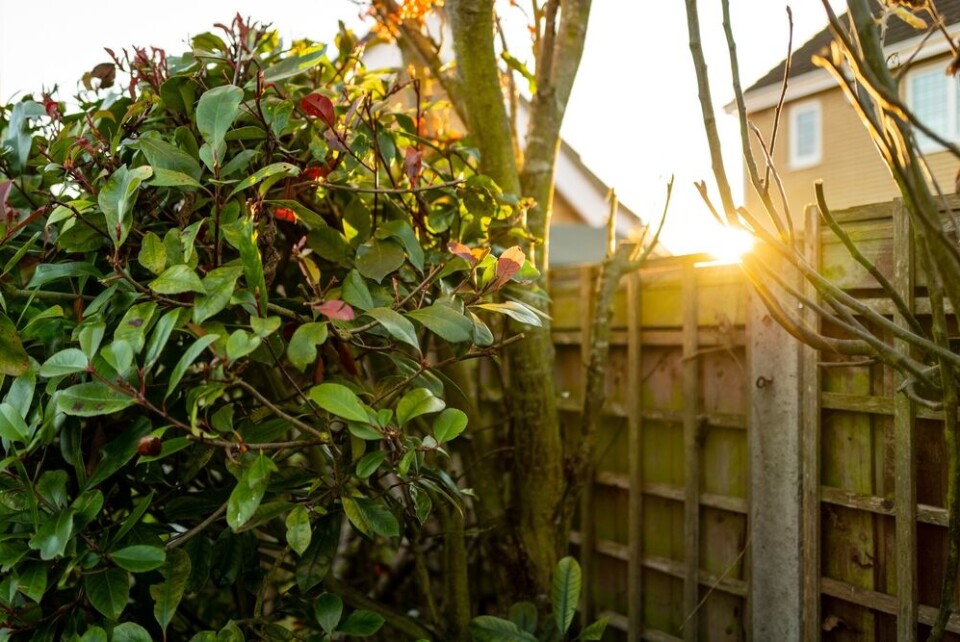-
From Oregon to Brittany: primrose nursery in France celebrates 90th anniversary
Barnhaven Primroses traces its history back to 1930s America
-
Can you offer rentals in France when staying on visitor visa?
There are different thresholds for rentals before they are deemed as ‘professional income’
-
Must all properties in France have a ‘smart’ thermostat?
Modern thermostats can automatically set temperatures even when residents are away
Can our neighbour in France force us to replace a hedge with a fence?
Position, height, age are all factors which will need to be considered

Reader Question: My neighbour is demanding that I remove my hedge and replace it with a mesh fence, and even share the costs of the work. Can he force me to do that?
This depends primarily on whether you own the hedge entirely, whether it is half-owned by your neighbour and where it is situated.
If it separates your properties but is firmly located on your property, then it belongs to you. You can check where it is located via the cadastre (cadastral land plan), which you can find here.
In general if you own 100% of the hedge your neighbour cannot require you to remove it, and they can only ask that you cut any branches that overhang into their property.
They are allowed to cut off the branches themselves, as well as any roots that spread into their property boundary.
Read more: Who must cut overhanging branches in French garden?
However the neighbour can demand that you remove a hedge (or any other plants or trees) that you own if:
-
It measures less than two metres high and it is located less than 50 centimetres from the boundary separating your properties, or
-
It measures two or more metres high and it is planted between 50 centimetres and two metres from the boundary separating your properties
So if the hedge belongs entirely to you, and it is more than two metres away from the boundary between your properties, and not encroaching on the neighbour’s property in any way, then your neighbour cannot require you to remove or alter it.
Similarly, if the hedge has been there - planted in place - for more than 30 years, your neighbour cannot force you to remove it. You will need to prove that it has been there for this time.
Is the hedge ‘mitoyen’?
Your neighbour is free to install a mesh or wire fence on their own property at any time, as long as it is set back from the property boundary and does not infringe on your property.
This installation must be paid for entirely by the neighbour, unless they have reached a prior agreement with you that the fence will be ‘mitoyen’, meaning half-owned by you and them.
In this case, the fence would need to delineate the separation between your property boundaries, and be installed on the exact boundary line.
Put simply, if the hedge separating your property and your neighbour’s property is located on the limit of both your properties, then it is a mitoyen hedge. In cases where it is unclear, you may also be able to ask for plans at the local mairie, which show if a hedge is mitoyen or not.
Your hedge also automatically becomes a mitoyen hedge if both neighbours can prove they have been taking care of it for 30 years, no matter on whose property it is based.
If it is a mitoyen hedge, then different rules apply. Each neighbour is responsible for the hedge on their property, and it belongs to each equally.
Each person still has control over their own garden however, meaning that your neighbour can still decide to remove a hedge - or part of it - that is firmly on their own property. If they choose to do that, they will have to replace the boundary with another type of separator, such as a wall or fence.
If you live in an urban area, an article on ‘la clôture forcée’ (forced enclosure) of the code Civil can mean that your neighbour can force you to help pay for a common fence. If there is uncertainty here - such as whether your properties are considered urban or not, or the exact location of the boundaries - it would be up to a judge or justice conciliator to decide.
They would take into account the number of residents in the zone, the activities that take place in the area, and the type of land and boundaries.
Related articles
Explainer: Rights and obligations for shared garden walls in France
Shared walls, €7,800 house, notaire fees: Five French property updates
Can I build on shared wall between neighbour’s and my French property?
























